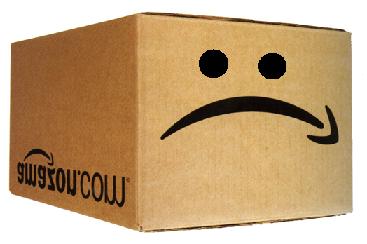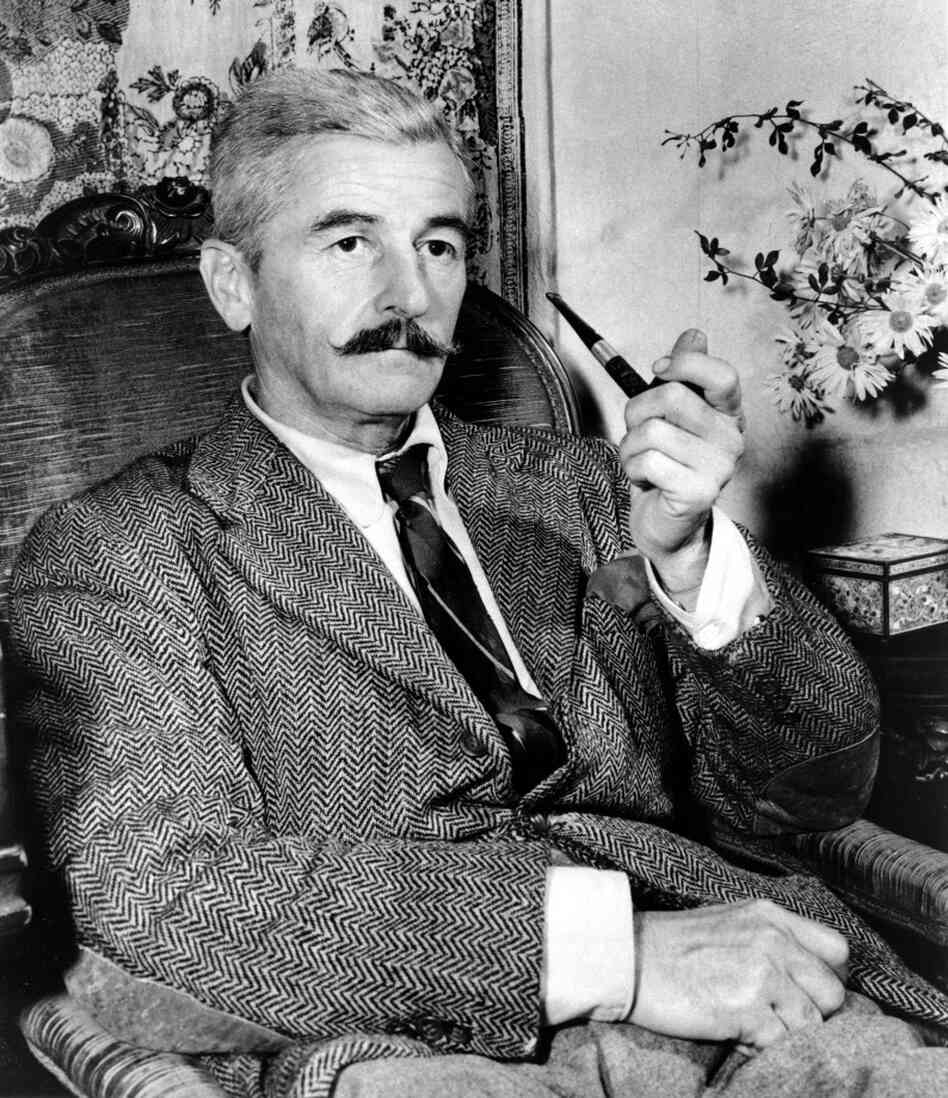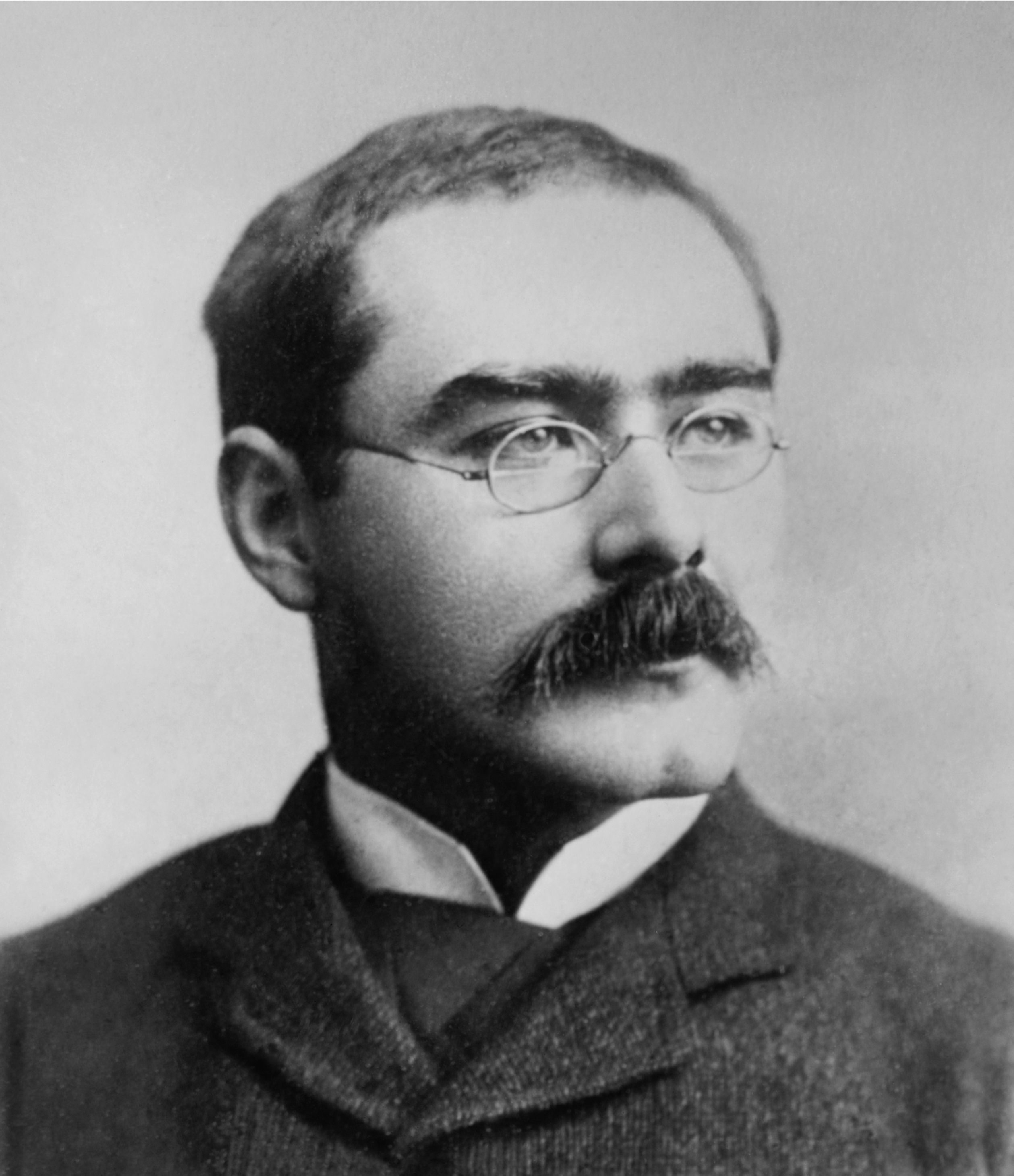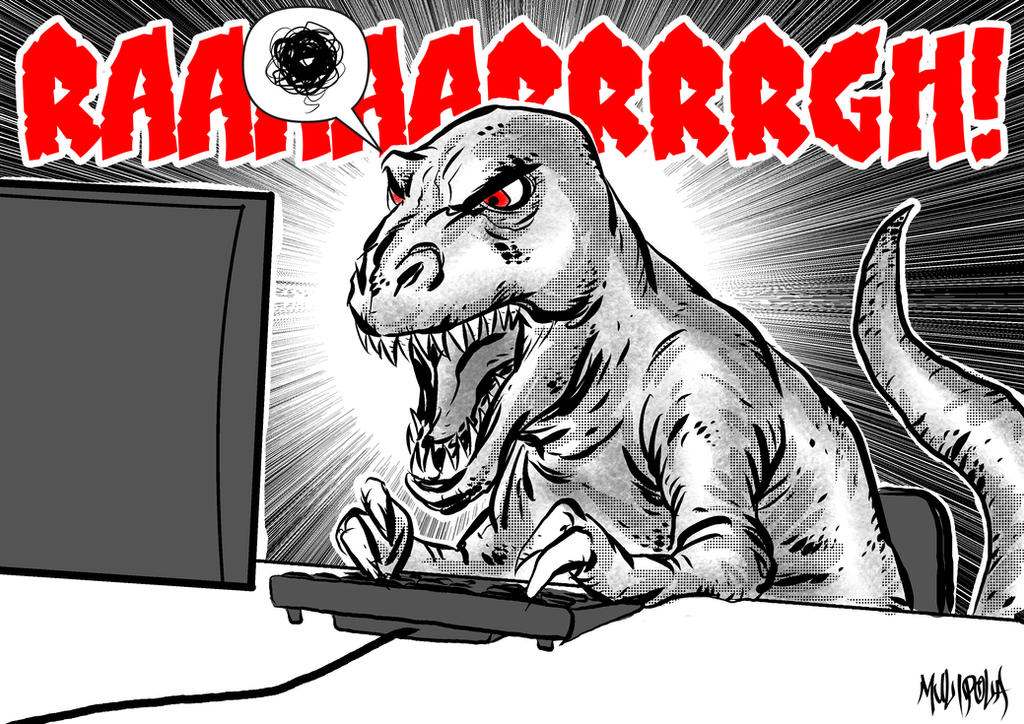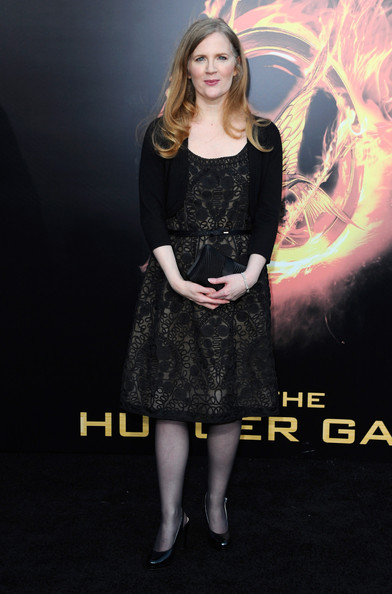I read a lot of writers' blogs.
1
I'm watching you.
Now, all the blogs I follow are filled with wonderful, original, witty insights about life and writing and publishing and love and hiding bodies in the woods in the middle of the night, but there are a few topics that tend to come up again and again on writers' blogs.
One of those topics is bad book reviews.
Consideration for your feelings stops the moment your book is published.
An unpublished manuscript is purely a work of art - the only benefit the author gets from it is personal satisfaction and self-expression. A published book is still a work of art... but it's also a product. If you want people to give you some of the money they earned from their hard lives of llama-rearing and drug-muling, just for the privilege of reading your book, then you have lost the right to silence your critics.
One of those topics is bad book reviews.
Summed up in this photo.
For the non-writers or new writers in my audience, let me summarize the debate real quick: Most authors who want to earn enough money from their books to afford a life that doesn't involve eating canned dog food under a bridge have to sell their books online. Now, with so many books screaming for attention on Amazon, Barnes and Noble and Kobo (which we're pretending is a real book retailer, so its feelings don't get hurt), you need a way to show consumers that your book is not a piece of 400-ply toilet paper. The way you do that is through book reviews. If your epic fantasy opus has tons and tons of glowing reviews, readers who stumble on your book are more likely to buy it so they can see what everyone is raving about. On the flipside, if a prospective reader stumbles on your book and finds nothing but people expressing their sympathies for the trees that had to die to print your epic fantasy turd/novel, chances are, they aren't going to spend their hard-earned money on your book.
Book reviews affect sales. For fledgling authors, they can make or break your writing career. Obviously, this leads to some problems.
Mr. Tickles was devastated to find a one-star review of his Amish BDSM dragon fantasy novel.
Different writers cope with bad reviews in different ways.
Lately, it seems like many of them are not coping well.
If you ever get bored enough to start following writing news, you'll notice that every few weeks, someone posts an article wherein an author refers to her bad reviews as 'bullying'. It's not just indie authors who are crying foul at poor reviews, either - big names like Anne Rice are getting in on the action. The author will claim that the bad reviews are unfair and undeserved. She will stomp her feet and claim that no one who worked so hard to write a book should ever be slapped with a one-star review. She will cry that she's being picked on, or singled out to be the sole recipient of a string of lousy reviews. If she's really on a roll, she'll even claim that these terrible reviews are being purposely written to ruin her sales; she might even decide that a rival author is behind the attack, talking fans into leaving terrible reviews to thin out the competition.
Pictured: your greatest author rival, dreaming up that brilliant scheme.
To that end, I'm noticing some authors coming forward with solutions for the bad review crisis. Some of them post templates and criterion for reviews, to make sure that any bad reviews are fully justified. Some authors have specifically requested that readers send negative reviews to them as private messages, and avoid posting them publicly. Many authors will even personally reply to all negative reviews, disputing the reviewer's claims and arguing for a better review. If you spend enough time creeping through forums for writers and authors, you'll eventually stumble across debates about how best to deal with bad reviews, and debates about whether or not any of those bad-review-busting tactics are justified.
Here's my input: they're not. All of these attempts to 'deal with' bad reviews are complete horseshit, for three very good reasons:
Here's my input: they're not. All of these attempts to 'deal with' bad reviews are complete horseshit, for three very good reasons:
1. Publishing is a business.
Your book is your baby. I know. I've written one, with another on the way. It's hard to take criticism on something you've worked so damn hard on, especially if the person giving the critique isn't an experienced writer themselves. And when your book is still in its unpublished infancy, yes, your feelings as an author should be considered. You are an artist looking for help to improve your work - anyone who gives relentlessly vicious criticism of a writer's unpublished work is just being cruel. A good beta reader can be harsh, but they should also be encouraging, offering suggestions for how the author can improve - even if that suggestion amounts to "learn to stop murdering the English language and get back to me". There is a big difference between giving much-needed honest feedback and being cruel for the sake of tearing the writer down. Writers are people with feelings, and it takes a lot of courage to let other people criticize your work.
Your book is your baby. I know. I've written one, with another on the way. It's hard to take criticism on something you've worked so damn hard on, especially if the person giving the critique isn't an experienced writer themselves. And when your book is still in its unpublished infancy, yes, your feelings as an author should be considered. You are an artist looking for help to improve your work - anyone who gives relentlessly vicious criticism of a writer's unpublished work is just being cruel. A good beta reader can be harsh, but they should also be encouraging, offering suggestions for how the author can improve - even if that suggestion amounts to "learn to stop murdering the English language and get back to me". There is a big difference between giving much-needed honest feedback and being cruel for the sake of tearing the writer down. Writers are people with feelings, and it takes a lot of courage to let other people criticize your work.
Eat your book and write a new one. Just trust me, it'll help.
Consideration for your feelings stops the moment your book is published.
An unpublished manuscript is purely a work of art - the only benefit the author gets from it is personal satisfaction and self-expression. A published book is still a work of art... but it's also a product. If you want people to give you some of the money they earned from their hard lives of llama-rearing and drug-muling, just for the privilege of reading your book, then you have lost the right to silence your critics.
Searching for this image definitely put me on some kind of watch list.
Book reviews on websites like Amazon and Goodreads serve one main purpose: they help prospective readers decide whether or not they want to read your book. That's it. On a site like Amazon that deals with a wide variety of eclectic and balls-out-insane household goods, a book review isn't much different from a review for a toaster, or a 1000-pack of Jesus wafers. It lets customers know whether or not their money would be well-spent on that product. Sure, it also provides feedback for an author about her skills, and lets her know what sort of things she should work on for the next book, but that's just a side perk. I once wrote a detailed review of a William Faulkner novel, but unless I go dig him up and read my review to his remains, he isn't going to hear my advice, much less use it for a future novel. The only people who benefit from my review are the people who are contemplating purchasing an 80-year-old novel about people building a coffin for a sick old lady.
Turns out, Faulkner and his mustache don't give a fuck what I think.
Book reviews are a big part of the business, and if you expect to make money from your craft, you need to suck it up and deal with the not-so-flattering comments. No one steps up to defend J.K Rowling or Cormac McCarthy or Neil Gaiman's feelings when a negative review is posted. They're expected to deal with it; they're professional authors, and it's part of the job. If you're exchanging your written work for money, that makes you a professional author too, and the same rules apply. If you want to go from "pizza-faced thirteen year old writing shockingly depraved Calvin and Hobbes erotic fanfiction in the basement" to "poised, dignified master of the written word", you need to hold yourself to the same standards that big-name authors do. Hiding, intercepting or otherwise silencing your critics is censorship. It's dishonest. You are trying to trick readers out of their money by deceiving them into believing that your book is getting only positive reception. The review system doesn't work if your prospective readers are being sheltered from some of your honest reviews. And filtering out those bad reviews can reflect especially poorly on you, because...
2. It steals the spotlight from your book.
If you are a published author, one of your biggest goals is getting people to read your book. You want people to buy it. You want people to discuss it. You want people to blog about it and Tweet about it and mention it on whatever other online invasions of privacy are passing for social networks these days. Yes, many authors have hopped on the bandwagon of blogging, tweeting and photographing the mundane details of their fast-paced and action-packed lives, but they have one goal in mind: to direct you to their website, so that you might discover, purchase, and read their books.
If you are a published author, one of your biggest goals is getting people to read your book. You want people to buy it. You want people to discuss it. You want people to blog about it and Tweet about it and mention it on whatever other online invasions of privacy are passing for social networks these days. Yes, many authors have hopped on the bandwagon of blogging, tweeting and photographing the mundane details of their fast-paced and action-packed lives, but they have one goal in mind: to direct you to their website, so that you might discover, purchase, and read their books.
Above: every author ever.
Oscar Wilde was an interesting, eccentric character, but if it wasn't for his writing, he'd be just another forgotten dead Irishman who spent time in a hard labour camp for being gay. Stephen King fought and prevailed in an incredible battle against addiction, but the world would never know about it if he hadn't sold approximately 17 billion books. Rudyard Kipling isn't "old white racist dude who happened to have wrote a book or something", he's "renowned author of The Jungle Book, and also maybe sorta racist". Your books come first, and all the other neat shit you've done comes afterwards.
Maintaining such a glorious mustache is the real White Man's Burden.
But when authors pour all of their time and energy into fighting back against bad reviews, they cease to be 'Writersaurus Rex, author of Alien Biker Babes in Space', and instead become 'Writersaurus Rex, that guy who complains about bad book reviews all the time'.
He's just frustrated from typing with his tiny, ridiculous hands.
There have been a few writers who've stepped forward in the past few years to complain about their bad reviews, or complain that they're being 'victimized' or 'bullied' by negative reviews. The results are always the same. All of their search engine traffic gets hijacked by news stories about their plight, burying their personal blogs, Amazon pages and Goodreads profiles. Five-star reviews start pouring in from sympathetic readers who want to help the author combat those nasty reviews, and one-star reviews trickle in from trolls who want to get a rise out of the author. Either way, it's all about the author. No one is actually reading the book, or purchasing it, or discussing it, or sharing it, or ripping all the pages out of it to make jaunty paper hats. It's not about the book at all, and when everyone gets bored of the hype, the author is left with a mess of fake reviews and few, if any, new readers. It doesn't get you any further ahead, especially when you consider...
3. Bad reviews are inevitable.
You can't please everybody.
Even this dog is disappointed in you.
Every book gets bad reviews. A Game of Thrones has bad reviews. The Road has bad reviews. The Hobbit has bad reviews. Every book you've ever enjoyed, cried with, laughed at, or set on fire in the backyard has bad reviews. Because ultimately, a review is about how much you personally enjoyed a book. One person may think a character is the greatest achievement of fiction since humans started painting stories on cave walls, and another person may think the same character is a waste of breath and ink. I would personally construct a time machine to go back in time and worship at the altar of Kurt Vonnegut's glorious faux-hippie mustache, but not everyone agrees with me.
People who hate Kurt Vonnegut are stupid and wrong. All sorts of people are stupid and wrong. So, yes, you're going to see book reviews that are unfair, or uneducated, or out-and-out cruel. I have a hipster friend who seems to get off on writing pretentious, pedantic reviews that put down popular books for being 'patriarchal' or 'hegemonic' while praising the obscure, underground, sixteen-copies-run-off-on-Mom's-pri+nter publications she enjoys. To each their own. Some people are dicks, and some people are dickish dicks made of smaller dicks that curl up every night in their hairy dick nests to vomit dicks into the dick mouths of their screeching dick offspring.
Case in point.
Here's the thing to keep in mind, though. No one reading that review is inclined to think any less of the book, or of the girl who wrote it. The only person who looks bad is the reviewer herself. Thoughtful, intelligent, well-deserved criticism may make people reconsider buying your books. Pointless name-calling will not. If most of your book reviews are positive, a few people expressing their distaste is not going to 'undo' all of those great reviews; scathing one-star reviews like the one posted above account for just 1% of The Diary of a Young Girl's reviews, and they have yet to make any real impact on its success or popularity.
And if the majority of your reviews are negative? Your readers just might be onto something - consider editing the next book more carefully.
Step One: Buy a shitload of red pens.
Either way, there is a right way and a wrong way to deal with bad reviews. Throwing a hissy fit is the wrong way. Next time you read a bad review and feel yourself coiling into an emotional knot, step away from the computer. Put down your smartphone. Get yourself a hot cup of coffee, dump that shit out, because seriously, who takes comfort from coffee, and go get yourself a whole bunch of wine. Boxed or bottled, your choice. Then you need to curl up with a good book, or a favourite movie, and give yourself a moment to relax. Sleep on it.
And when you feel better, you fire that computer back up and you get right back to writing. Because fuck those bad reviews. They can't stop you.

